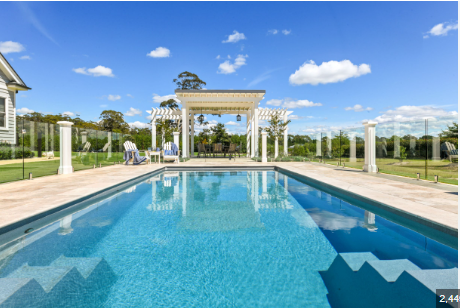Many households and businesses are looking for sustainable options for their buildings and amenities as the globe becomes more conscious of the environmental impact of our choices. One such option is the stainless steel pool, a modern innovation that not only offers aesthetic and functional advantages but also significant environmental benefits. This article explores the various ways in which stainless steel pools contribute to environmental sustainability, making them an excellent choice for eco-conscious consumers.
Durability And Longevity
One of the primary environmental benefits of stainless steel pools is their remarkable durability and longevity. Unlike traditional pool materials such as concrete, fibreglass, or vinyl, stainless steel does not degrade or deteriorate over time when exposed to water and chemicals. This means that stainless steel pools have a significantly longer lifespan, often lasting several decades without the need for major repairs or replacements.
The extended lifespan of stainless steel pools translates to a less frequent need for manufacturing new materials and reduced waste from pool renovation or demolition. This durability not only conserves resources but also minimizes the environmental footprint associated with pool maintenance and replacement.
Recyclability
One of the greenest construction materials is stainless steel because it is completely recyclable. Stainless steel pools are fully recyclable and can be transformed into other goods once they have served their functional purpose. Because of its recyclability, less waste ends up in landfills, and less fresh raw materials are needed.
In contrast, traditional pool materials like concrete and fiberglass are not as easily recyclable and often end up contributing to construction waste. By choosing a stainless steel pool, homeowners and businesses can significantly reduce their environmental impact through the entire lifecycle of the pool.
Energy Efficiency
Outback stainless steel poolsare inherently energy-efficient. More so than other materials, stainless steel’s reflective surface aids in heat retention, allowing the pool to remain at a consistent temperature. This natural heat retention can reduce the need for additional heating, thereby lowering energy consumption and associated greenhouse gas emissions.
Moreover, stainless steel pools can be designed with advanced insulation systems that further enhance energy efficiency. By maintaining a stable water temperature with minimal energy input, stainless steel pools help to conserve energy and reduce utility costs, benefiting both the environment and the pool owner.
Reduced Chemical Usage
The non-porous surface of stainless steel pools resists algae and bacterial growth, which are common problems in traditional pools. This resistance to microorganisms reduces the need for chemical treatments such as chlorine and algaecides. Fewer chemicals not only mean healthier swimming conditions but also less environmental pollution from chemical runoff.
Additionally, stainless steel pools require less frequent cleaning and maintenance, which further minimizes the use of cleaning agents and water. By reducing the dependency on harsh chemicals and excessive water use, stainless steel pools contribute to a healthier and more sustainable environment.
Water Conservation
Water conservation is another significant environmental benefit of stainless steel pools. The superior construction and sealing properties of stainless steel pools result in minimal water leakage. Traditional pools, especially those made from concrete, are prone to leaks and cracks over time, leading to substantial water loss and the need for frequent refilling.
By preventing water leakage, stainless steel pools help conserve water, a precious and often scarce resource. This conservation is particularly important in regions facing water shortages or those with strict water usage regulations.
Sustainable Manufacturing Practices
The production of stainless steel itself has become more environmentally friendly over the years. Modern stainless steel manufacturing processes are designed to minimize energy consumption and emissions. To further lessen their effect on the environment, many stainless steel manufacturers include recycled materials into their manufacturing processes.
Moreover, stainless steel manufacturing generates less industrial waste compared to the production of concrete or fiberglass. The adoption of sustainable manufacturing practices ensures that the environmental benefits of stainless steel pools begin right from the production stage.
Aesthetic And Functional Advantages
Beyond the direct environmental benefits, stainless steel pools offer aesthetic and functional advantages that contribute to their overall sustainability. A property’s aesthetic value can be increased with stainless steel’s clean and modern appearance, which in turn reduces the frequency of renovations or updates. This long-term appeal helps prevent the waste associated with redecorating or remodelling.
Stainless steel pools are versatile and available in a wide variety of sizes, making them a practical choice. This adaptability means that less material is wasted during construction, and the pool can be tailored to the specific needs of the site, optimizing space and resources.
Conclusion
Stainless steel pools are becoming more popular among eco-conscious households and businesses in this age of severe environmental concerns. Their durability, recyclability, energy efficiency, reduced chemical usage, water conservation, and sustainable manufacturing practices collectively make them a superior environmental option compared to traditional pool materials.
By choosing a stainless steel pool, individuals not only invest in a long-lasting and aesthetically pleasing amenity but also contribute to the broader goal of environmental preservation.


